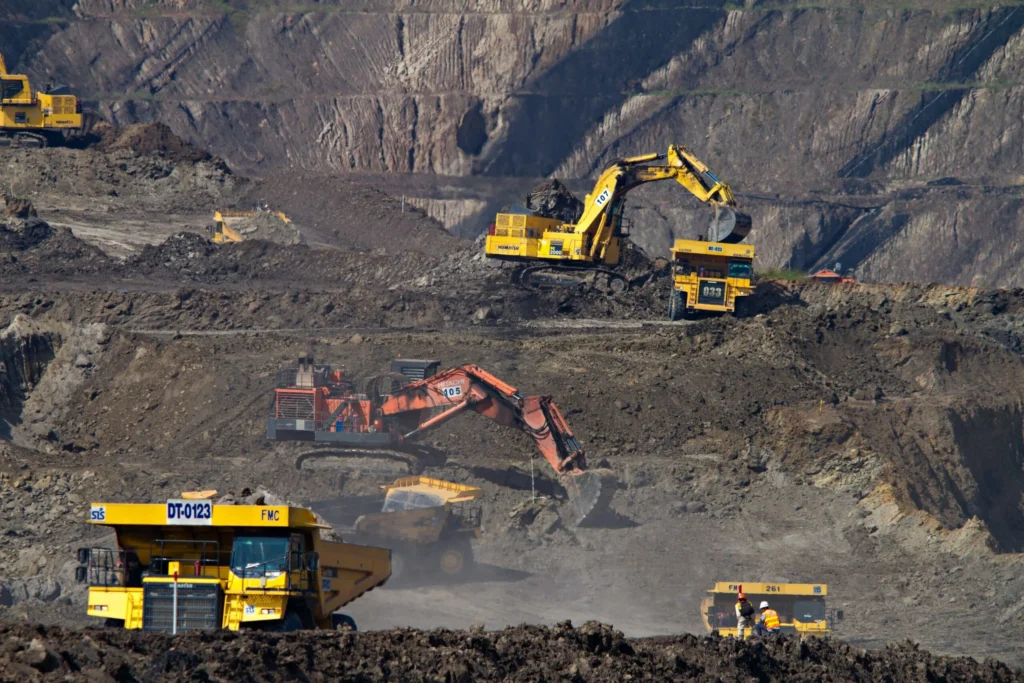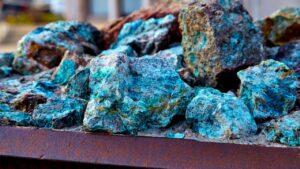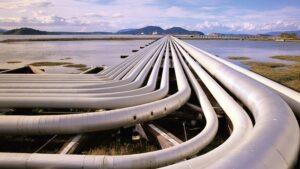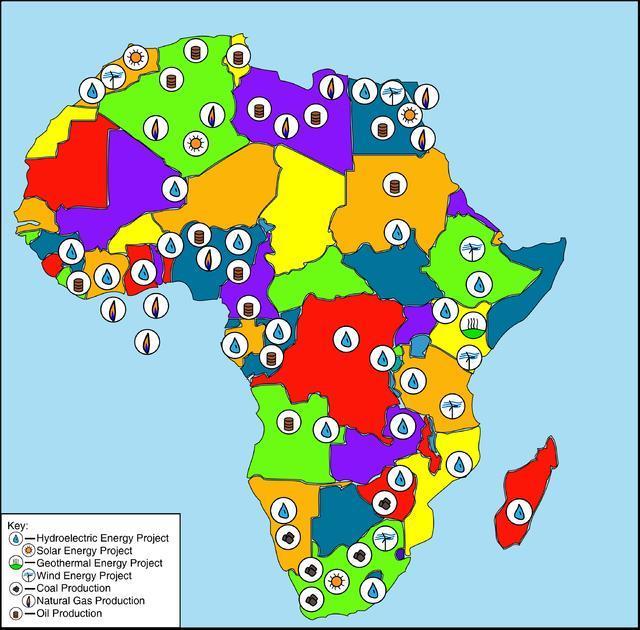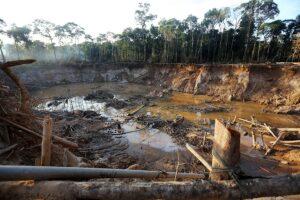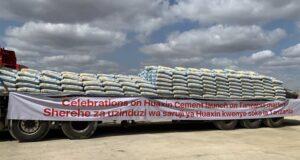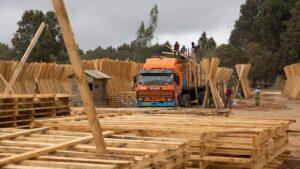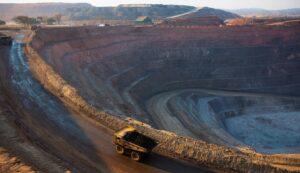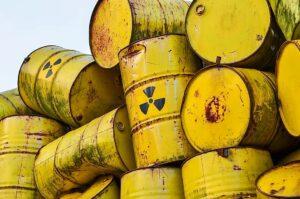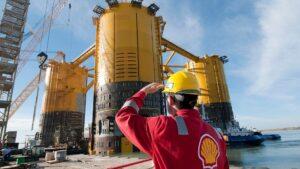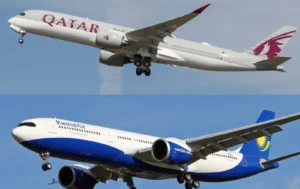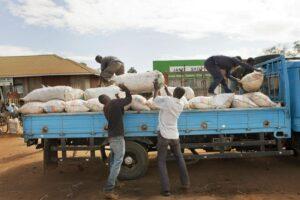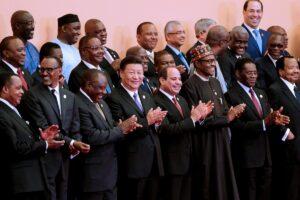- Africa’s new dawn: the rising role of digital and AI in agriculture
- Can Dangote Refinery Transform Africa Energy Ambition
- Gallup Survey: 80 per cent of Kenyan Workers Are Disengaged and Seek New Opportunities
- Madagascar Man Freed from 5KG Tumor After 15-Year Struggle
- How women in Africa are perceived and treated
- Sugar consumption in Kenya to Increase to 1.23 Million Tonnes
- Can Somalia and Turkey Oil deal Bring Change in Somaliland
- Remittances to Kenya dropped to $371.6 million in June, marking a six month low
Extractive and Energy
- South Africa has adopted a number of measures aimed at boosting the country’s critical mineral industry.
- In January 2023, mining production experienced its twelfth consecutive month-to-month decline, recording a decrease of 1.9 per cent.
- According to the Minister of Mineral Resources and Energy Gwede Mantashe, the industry needs to advance a commitment to working together as stakeholders on the reconstruction and recovery of the mining industry.
South Africa’s vast reserves of critical minerals present a huge opportunity for the country to accelerate economic growth and boost employment creation, while ensuring the energy transition is just and inclusive.
Statistics South Africa recently released its key findings for the fourth quarter of 2022, wherein the real Gross Domestic Product (GDP) decreased by 1.3 per cent. According to the report, the mining and quarrying industry decreased by 3.2 per cent and thus contributed -0.1 per cent to the GDP growth.
Key to
The rapid snowballing of Africa’s rare earths metal production is set to become the world’s alternative source in 2023 and beyond, as global demand surges and world powers seek to wean off their dependence on China amid a new geopolitical multipolar world order. Africa’s vast reserves of rare earth metals have come under the radar of world powers fueled by the devastation emanating from the climate change crisis and calls for a drastic reduction in the growth and operations of extractive industries.
Furthermore, the race to net-zero emissions compounded by increased climate-induced natural disasters has intensified the green energy transition, instigating another scramble for Africa’s resources rare earth metals are at the heart of the race to green energy as well as providing opportunities for massive economic growth by injecting much-needed revenues to finance core socio-economic objectives in the continent.
Rare earth elements (REEs) refers to a group of 17 …
Africa has been hailed as the next frontier in the provision of global oil and natural gas resources, especially now in the wake of the ongoing Russia-Ukraine war.
This crisis has not only altered the global energy landscape, but also instigated an inflation in gas prices, given the former’s position in the hierarchy of major global producers. As sanctions continue to soar, Europe has embarked on a quest to find contingency energy supplies, as it seeks to minimize its dependency on Russia; which has already cut off gas supplies to countries like Finland, Poland and Bulgaria, over energy payment disputes.
Consequently, Africa’s gas resources have gained a newly found prominence, pertinently by the European Union (EU); owing to the continent’s rich endowment of oil and deep gas reserves. The mounting global demand for gas, has been pushing international energy companies to reconsider African projects. The numerous ongoing and upcoming oil …
As usual, it is the scramble for Africa. This continues with the AU not condemning the anarchy by financiers of the chaos who are mostly not African.
Africa’s underground riches have for decades been driving a cabal of selfish dictators, in collaboration with their Western masters, to doing the unthinkable. Mali is the latest casualty.
Mali is rich in every sense.
The West African nation is the continent’s fourth-largest gold producer after Ghana, South Africa, and Sudan with the country’s natural resources industry dominated by gold. The country’s primary export is gold which accounted for more than 80 per cent of Mali’s total exports in 2020. …
- Tanzania’s cement demand is estimated to have clocked 5.9Mt and is growing fast.
- Maweni Limestone Ltd will be China’s first African entity producing cement on the continent instead of importing.
- The newly purchased plant by Huaxin Cement has already been upgraded to a production capacity of 1.6Mt/yr.
If there is a booming industry in Tanzania, it is the cement industry – an industry that has more than doubled in production in under a decade.
As of 2011, Tanzania was producing 2.4Mt annually, a figure that has shot up to 6.5Mt as of 2020.
Compared to the previous year, the production volume of cement grew by 44.5 per cent and is associated with rising construction activity in the country.
Read:
Another marker of how well the industry is doing is the amount of investment the sector is getting annually. Consider the most recent buyout of Maweni Limestone Ltd by China’s Huaxin …
To discourage the use of firewood and charcoal, the European Union (EU) has committed to fund renewable energy solutions specifically designed to set up and support a sustainable cooking solution program.
EU Head of Delegation to Tanzania, Ambassador Manfredo Fanti announced the EU led program late last year in the capital, Dodoma. At the launch, the diplomat said the initiative is part of the EU’s efforts to mitigate climate change through the use of renewable energy solutions for cooking.
However, what is interesting here is that increase in the use of firewood and charcoal is not in rural Tanzania but in the urban centres.…
Glencore has been for over 10 years in the cross-hairs of Global Witness, a non-governmental organization and lobby group established in 1993 that works to break the links between natural resource exploitation, conflict, poverty, corruption, and human rights abuses worldwide.
The organization has offices in London and Washington, D.C.
Global Witness has also in that time blown the whistle on what it describes as suspicious transactions and dealings in the DRC involving Glencore’s operations and its association with sanctioned businessman Dan Gertler. …
Toxic substances that are contained in e-waste contaminate the soil; however, they do not stop with the topsoil.
Heavy metals such as mercury, lithium, lead and barium leak through the earth all the way to the table water contaminating groundwater.
Now groundwater is the basic source of all water that we consume because groundwater is the water that eventually resurfaces as springs, ponds, streams, rivers and lakes.…
In his ruling, Judge Bloem said that Shell had failed to prove the safety of the project against the claims made by environmental experts and the local community, and that there had been a substantial flaw in the consultation process with the locals in the Wild Coast.
Protests against Shell exploration have gained 85,000 signatures with over 35 fuel stations dumping the company.
The local communities expressed their disappointment, saying that their customary rights to the land where they fished and did their religious activities had not been respected. Shell quietly announced the commencement of the seismic survey on November 4, 2021.…





